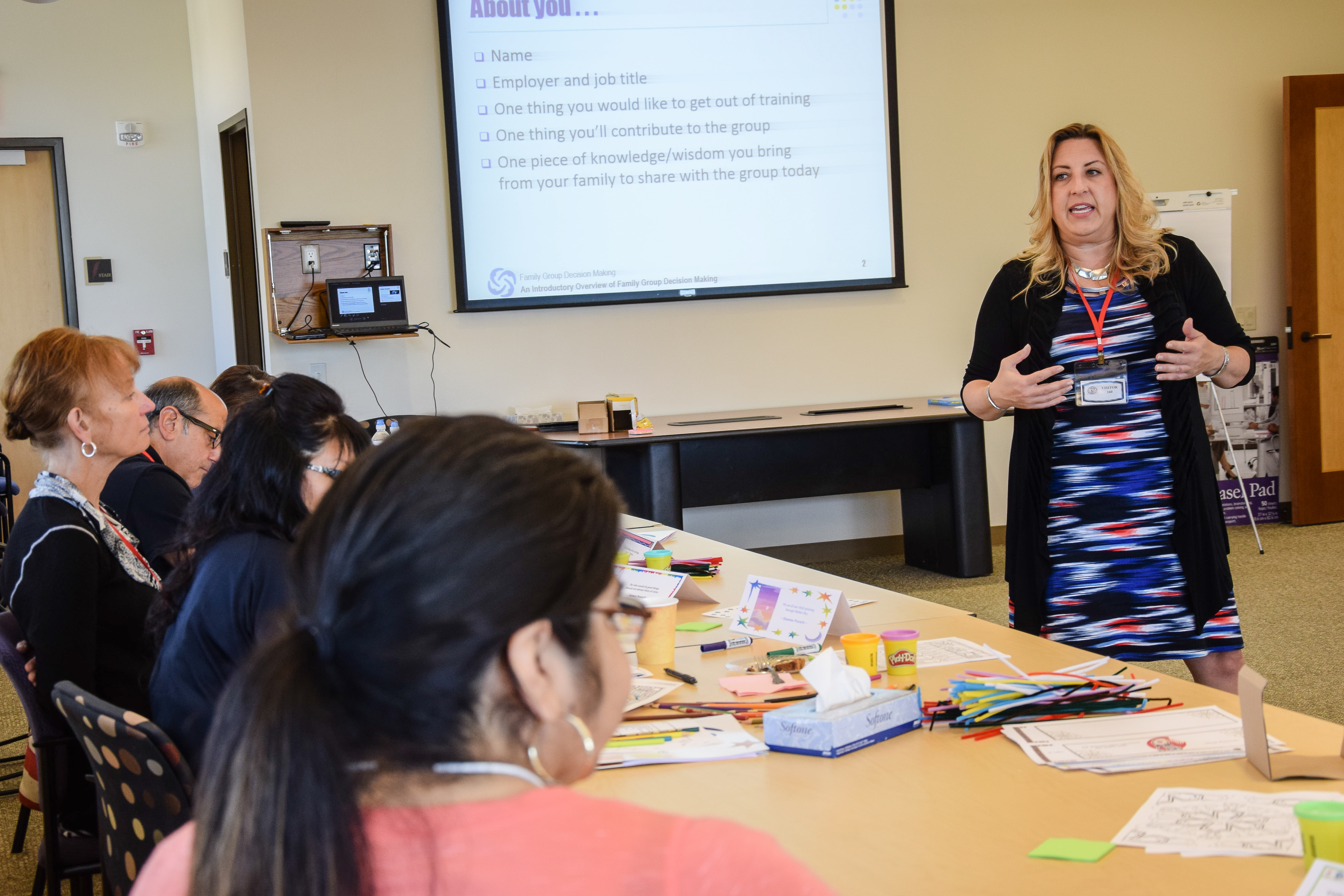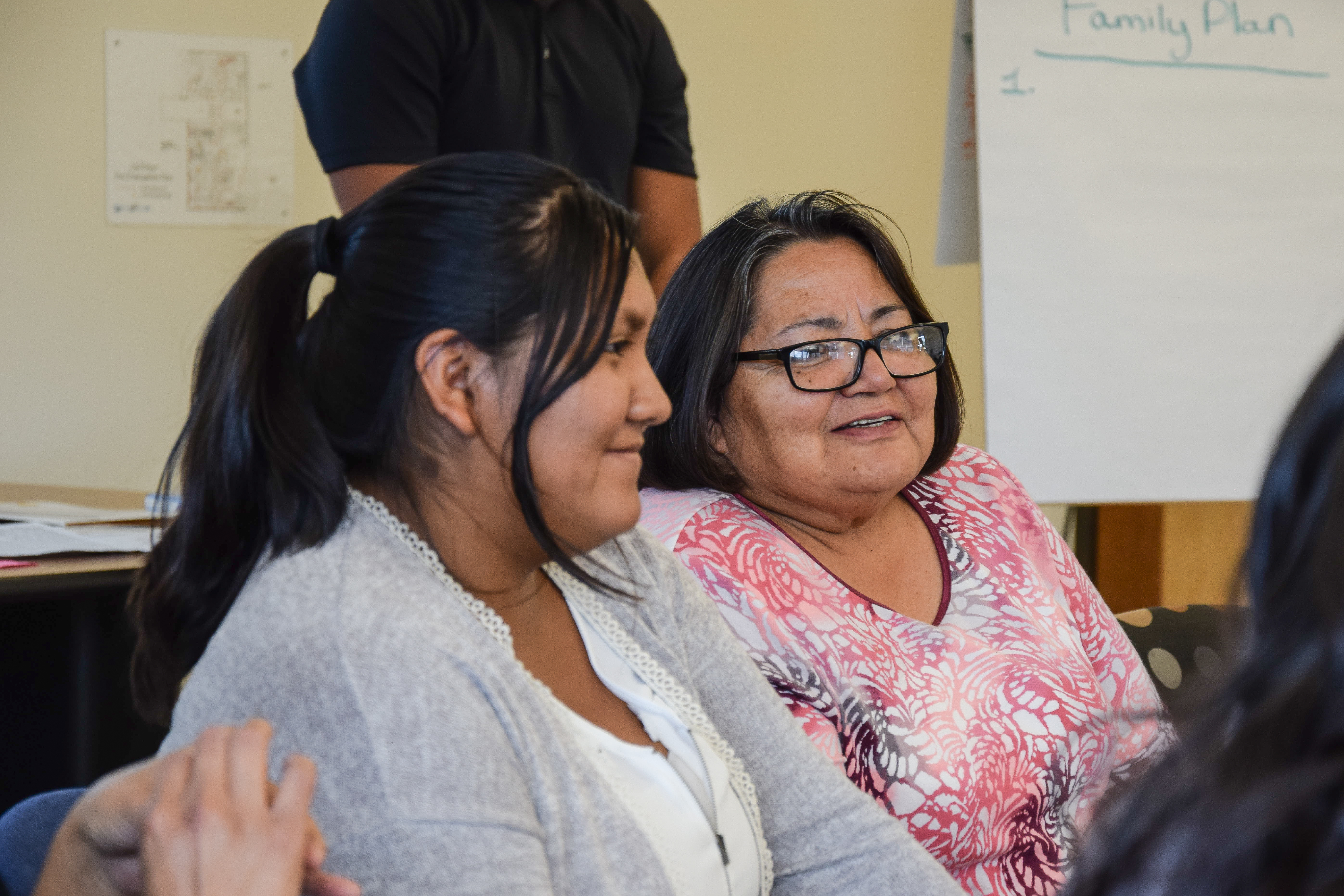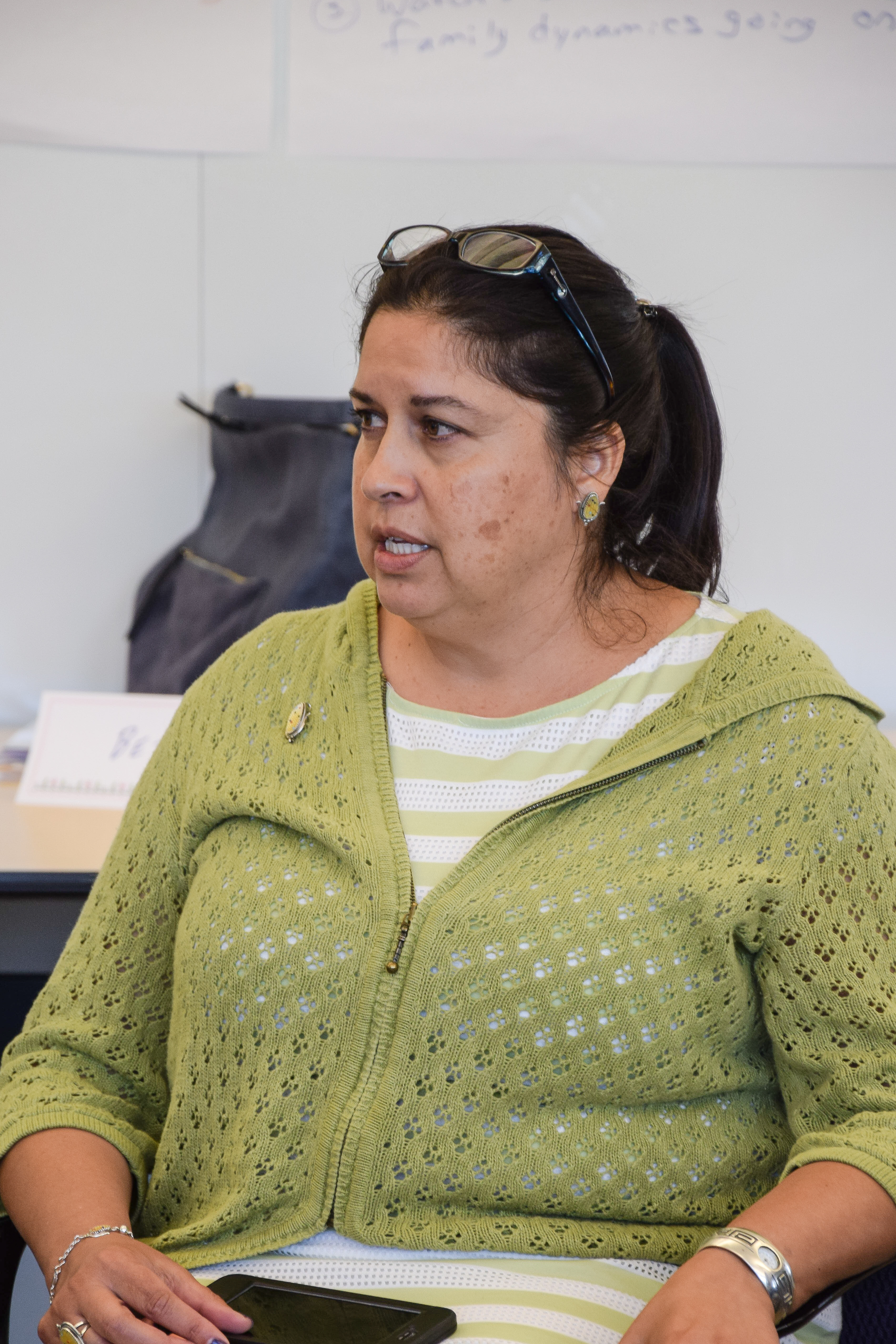From August 8 through August 10, representatives from Southern Ute tribal departments got together for a three-day course discussing the essentials of Family Group Decision Making (FGDM), hosted by Anita Horner, Senior Instructor and Practice Advancements Manager of the Kempe Center for the Prevention of Child Abuse and Neglect. Kempe is a national group that applies family decision-making skills by providing resources and fundamentals on certain issues within families, whether it is addiction, mental health, abuse, trauma, etc.
FGDM is a decision-making process in which members of the family group are invited and joined by members of their information network, community groups, and child welfare agencies that have become involved in the family’s lives.
“We need to let the families have a say in what they’re going through,” said Anita Horner. “It’s about how families comprehend and find a solution with one another. This course allows those who participate to experience different roles in how families are affected.”
During the three-day course, representatives from Southern Ute Tribal Council, Social Services, Southern Ute Education Department, Southern Ute Tribal Court, Detention/Probation Center, and the Southern Ute Indian Montessori Academy participated in group discussions and role-playing scenarios that involved common family issues. Participants were given a certain role to which they had to provide background information with their character’s issue and identify a procedure in confrontation.
“The [course] taught us all how to identify potential situations that is common with many families,” commented Charise Hunter, FGDM coordinator apprentice. “It was good for us and the resource providers to be on the same page in order for us to provide a good foundation for the membership when it comes to these issues … whether it’s addiction, trauma, abuse, or other problems. We just want people to know that if they’re experiencing any problems, they can feel open to talk about them to us about it. No one should feel ashamed that they have a difficulty, and they should not feel like they’re putting a burden on someone else for telling them.”
“When we were doing the role playing, I could feel it as a healing,” added Natelle Thompson, Sunshine Cloud Smith Youth Advisory representative. “It seems we all felt a connection through our characters. This was my first time taking a training course like this, and learning about family group decision-making helped me [identify] certain issues.”
“Having these discussions with each other, it gives us the knowledge in how to comfort a tribal member who feels they need to talk to someone, a person who can support them,” stated Tribal Councilwoman Amy J. Barry. “We also consider spiritual healing as an option, and we have the resources for that. Spirituality is a therapeutic measure that we should take advantage of.”






